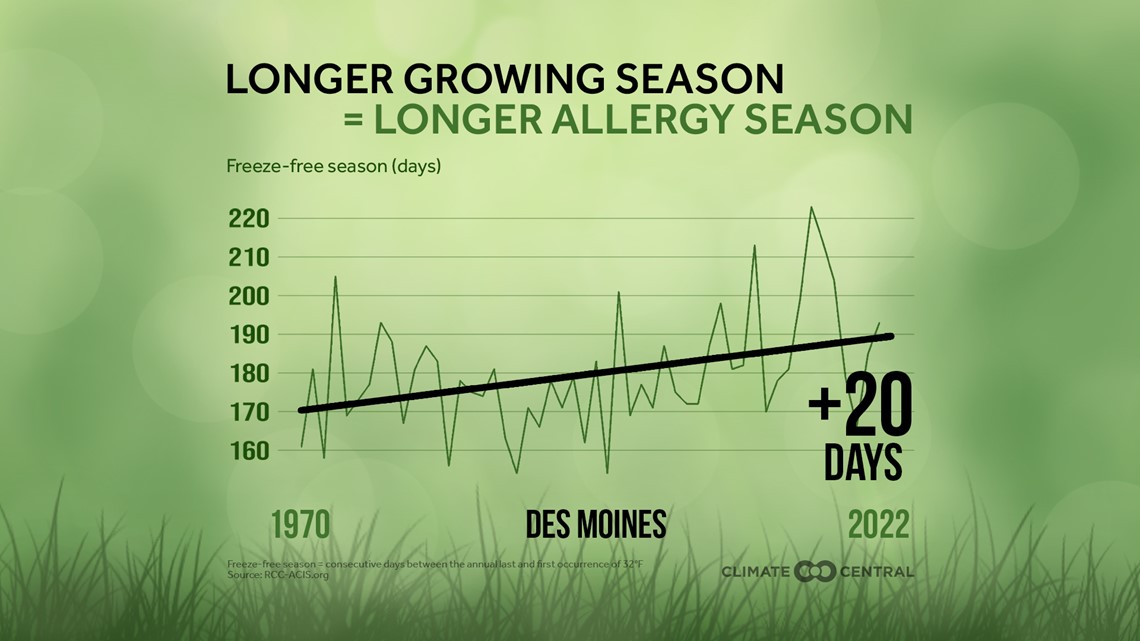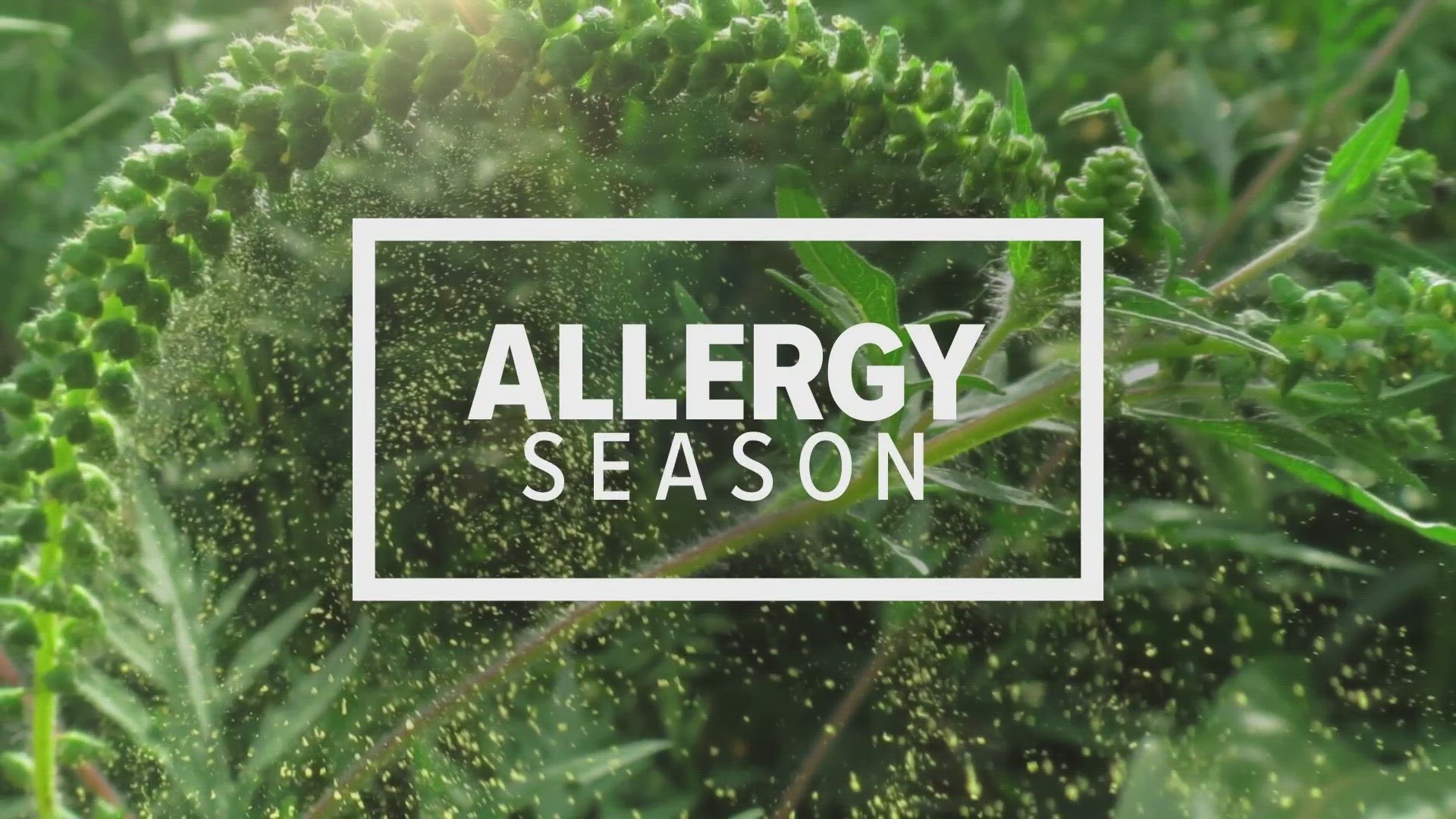DES MOINES, Iowa — The beautiful weather this week is no doubt making us all want to go outside, but allergy season is still kicking in high gear.
Unfortunately, allergy season isn't expected to end anytime soon. In fact, climate change is actually extending allergy season.
Dr. Robert Colman has been an allergist for three decades. Over time, he says he's noticed seasons starting earlier and ending later, which is exasperating allergy symptoms.
"It's just gradually getting worse each decade," he said.
Other allergists are seeing the same things with their patients.
"One of the most common things I see every day, or I hear every day when patients come in is 'Yeah, you know, I've been having allergies all my life. But the last few years have just been really, really bad for some reason,'" said Dr. Vuong Nayima, president of the Iowa Allergy Clinic.
Nayima's patients aren't wrong: allergies are getting worse, mainly because climate change has added 20 additional days to the pollen season.


"[A] warmer atmosphere overall leads to an increase in the growing season," said Justin Glisan, a climatologist for the state of Iowa. "The trees that produce pollen are able to produce more pollen, given the longer growing season, the warmer atmospheric temperatures, but also more food for photosynthesis."
That food, carbon dioxide, is the most common emission gas driving climate change across the globe. Plants, trees, and grass use carbon dioxide like humans use oxygen.
"We see a lot of planting of trees in urban areas," Glisan said. "Those trees act to pull that CO2 out of the atmosphere. So there's a plus side to that, but also, then we have to deal with more pollen."
In March, the Asthma and Allergy Foundation of America ranked Des Moines as the ninth most challenging place to live with pollen allergies in the U.S.
"We hear probably five times a day, 'Yeah, I lived in Idaho, or Florida or whatever. And then all of a sudden, I moved here, and it's just way more worse than I thought it would be,'" Niyama said. "The immune system and the climate is a moving train, right? It's not a lawnmower, you can't turn on a dime. So it's going to take decades of work to really slowly reverse it. Because once it's going, you can't stop it."
Nayima added that allergies are the biggest driver of asthma. 60-80% of his patients that have asthma also have allergies.

